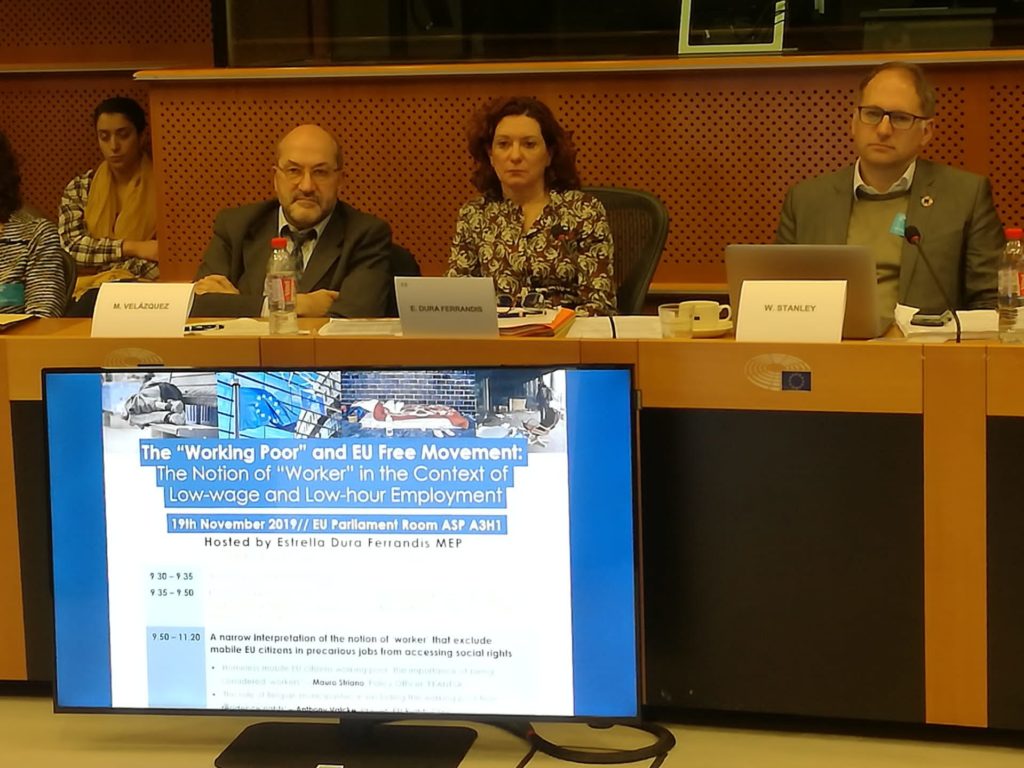On 19 November, I organised a conference on “The Working Poor and EU Free Movement” in collaboration with FEANTSA (European Federation of National Organizations Working with the Homeless) in the European Parliament in Brussels.
The objective was to remember the barriers and problems that European citizens face when they move to another country of the European Union to work.
The right to free movement of citizens and workers is a basic European value and a fundamental right in the European Union, as set out in Article 45 of the Treaty on the Functioning of the European Union (TFEU). It is also a pillar of the success of the single market of the European Union and must be supported by well-articulated mechanisms that support the European social model.
But the reality is that there are still gray areas with important exchanges of workers who exercise their mobility in precarious conditions, forced by circumstances and often deceived by fraudulent or poorly informed recruitment companies.
To this we must add that in many Member States their right to equal treatment with respect to nationals of the country is violated, introducing barriers that discriminate against them in access to social protection. In addition, in recent years, political attacks by nationalist and xenophobic forces against intra-European immigrants have grown, reproaching them of “taking advantage of the social assistance of another country without working.”
According to Eurostat, more than 20 million workers in the EU are poor workers, that is, with incomes below 60% of the average income of the country where they live. The consequences go beyond material deprivation: poor workers have lower levels of mental health, as well as feelings of social exclusion, as well as housing problems and difficulties to access to basic social services such as health.
It is necessary to recognise that labour poverty is the result of deregulated labour markets that use garbage contracts and this is unacceptable. Nevertheless, important steps have already been taken to improve the mobility of workers and their protection:
– the reform of the legislation on displaced workers, which has established equal treatment with local workers,
-and the creation of the European Labour Authority, to ensure that European legislation on worker mobility is respected in a simple and effective way
– also the Directive on transparent and predictable working conditions, which aims to improve the working conditions of those with more precarious and on demand contracts, and which introduces a novelty that may constitute an the end of discriminatory practices against precarious migrant workers .
We Socialists claim a true European labour market with equal wages and access for all workers to adequate social protection including a guaranteed minimum wage and decent working conditions.

